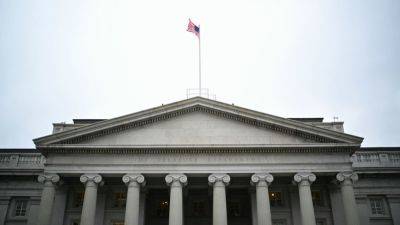Germany’s economy is on shaky ground and glimmers of hope are few and far between
Good news has been sparse for the German economy. And the latest economic data has not done much to change this.
A few key 2023 data points, namely factory orders, exports and industrial production, were out last week and indicated a weak end to the year that saw questions about Germany being the "sick man of Europe" resurface.
"The data confirm that German industry is still in recession," Holger Schmieding, chief economist at Berenberg Bank, told CNBC.
Industrial production declined by 1.6% in December on a monthly basis, and was down 1.5% in 2023 overall compared to the previous year. Exports – which are a major cornerstone of the German economy – fell by 4.6% in December and 1.4%, or 1.562 trillion euros ($1.68 trillion), across the year.
Meanwhile, factory orders data seemed promising at first glance as it reflected an 8.9% increase in December compared to November.
But this growth "is not much reason for comfort," Franziska Palmas, senior Europe economist at Capital Economics told CNBC, explaining that it is thanks to several large-scale orders, which tend to be volatile. "Orders excluding large-scale orders actually fell to a post-pandemic low," she added.
For 2023 overall in comparison to the previous year, factory orders were down 5.9%.
While this "hard" data from December does not yet suggest recovery is in sight, the most recent Purchasing Managers' Index report indicates that the worst may be over soon in the manufacturing sector, Schmieding said.
"Although at 45.5 still below the 50 line that divides growth from contraction, it edged up to an 11-month high," he noted.
Even so, economic growth is unlikely to be imminent, Erik-Jan van Harn, a macro strategist for global economics and markets at Rabobank, told CNBC.
"We






